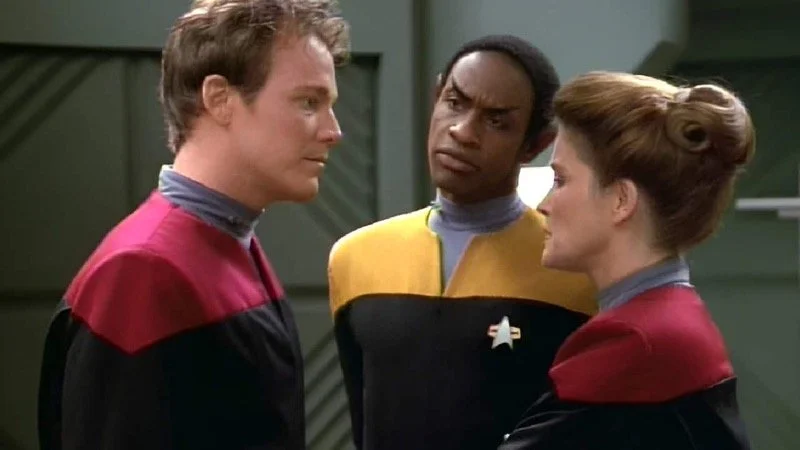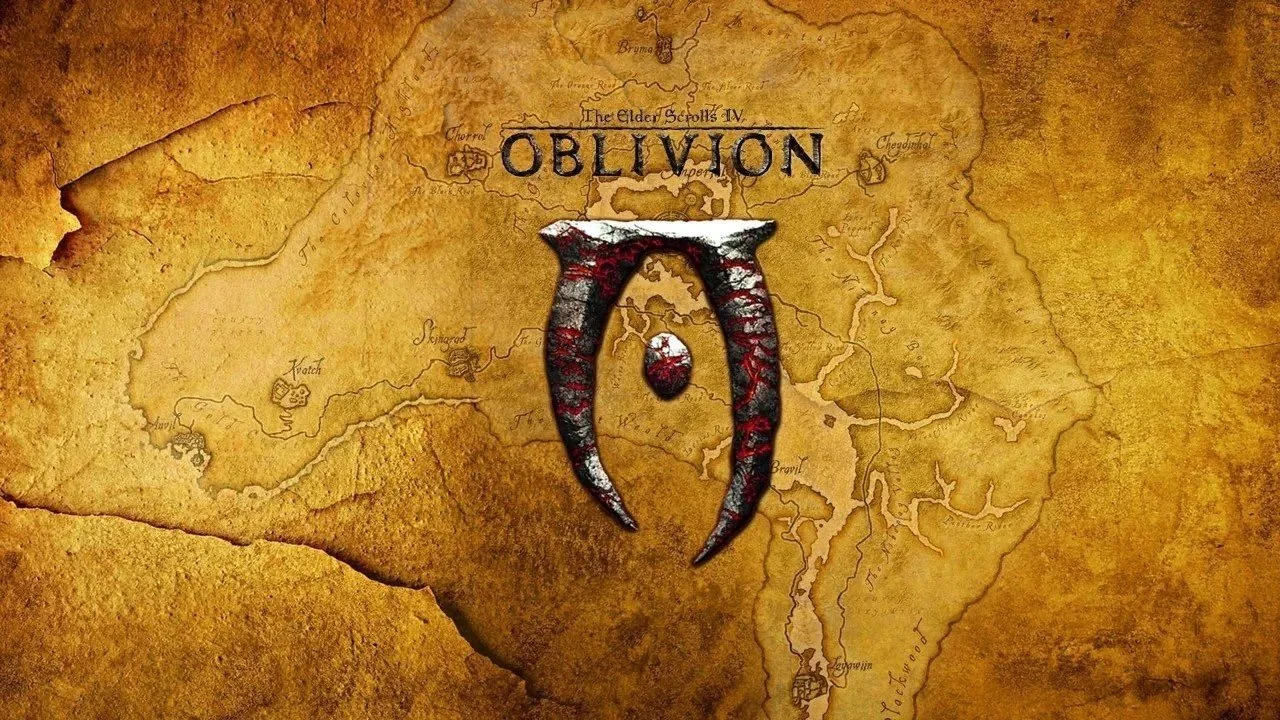30 Years Of 'Star Trek: Voyager'
Image Source: X
The Star Trek franchise has been orbiting around Star Trek: Voyager for 30 years now. Amidst the success of Star Trek: Deep Space Nine, which aired from 1993 to 1998, Voyager premiered on January 17, 1995. In the two-parter episode, “Caretaker,” the Maquis crew are the first to be introduced. These rebels, Chakotay (Robert Beltran), Tuvok (Tim Russ), and B'Elanna Torres, have left Starfleet's ideals to “fight the good fight,” but they're sucked through a vortex while on a mission. Meanwhile, Captain Kathryn Janeway (Kate Mulgrew) is recruiting for U.S.S Voyager's maiden journey. Between recruitment and departure, we get to know Captain Janeway and some other members of her crew, like Tom Paris (Robert Duncan McNeill) and Harry Kim.
However, in their quest to recover the lost Maquis ship, both B’Elanna (Roxann Dawson) and Harry (Garrett Wang) end up taken by an unknown captor. The resistance group gets tangled up with the Voyager together to save their engineer. By the end of the episode, the Starfleet crew and the Maquis crew are stranded together in the uncharted Delta Quadrant, 70,000 light-years from Earth in the Alpha Quadrant of space.
RELATED:
Image Source: Trekkie Feminist
Even before “Caretaker” aired in January 1995, Voyager was positioned to make history. Already, early interviews with the cast were proving that Voyager was a new brand of Trek. An Entertainment Weekly headline from the same month with Mulgrew on the cover speared the concept as “Star Trek: Voyager -- Boldly Going Where Only Men Have Gone Before.” In the article, Mulgrew explained the chance the showrunners and writers took when deciding on having a female captain: “Women have an emotional accessibility that our culture not only accepts but embraces. We have a tactility, a compassion, a maternity— and all these things can be revealed within the character of a very authoritative person.”
In the same article, Robert Picardo, who plays the Doctor, riffed about the future that lies beyond the series’ first season, having already been asked to appear at an Ireland Star Trek gathering two years after the fact. “I am definitely looking forward to the possibility that these characters could go beyond television. As an actor, I’ve never had a job like this, where you think in terms of something lasting that long.”
That early optimism proved well-founded. Throughout its seven seasons, Voyager advanced the typical Star Trek narrative with new aliens, cultures, and planets; more overarching plots and conflicts; and ethical dilemmas and the Prime Directive in the pilot’s seat. The protagonists are dynamic and realistic, with many getting promotions throughout the series or going through other significant changes. Science fiction, philosophy, literature, mythology, history, and intergalactic relationships take the spotlight throughout Voyager’s 172 episodes. Seasons four, five, and six feature some of the best storylines of the whole series.
Image Source: Giant Freakin Robot
Voyager’s true strength lay in its character development, with an ensemble cast that evolved over time and character arcs that continued with recurring roles in future Star Trek. Captain Janeway perseveres through more challenges than any other Starfleet Captain had been involved with previously. Neelix (Ethan Phillips) and Kes (Jennifer Lien) join the crew to supplement their local knowledge now that Voyager is so far from the help they were expecting from back home. Seven of Nine (Jeri Ryan) transitions from an enemy Borg to the ship’s scientist, even building the ship’s astrometrics lab with Harry. The Doctor questions his sentience and culture as the ship’s Emergency Medical Hologram.
Star Trek as a whole has had a notable impact as more than just revolutionary television, perhaps unexpectedly inspiring the next generations of women to pursue interests in STEM fields. The portrayal of strong female characters and a society that shows minorities and disabilities as completely normalized has served as a role model for many. For instance, Dr. Mae Jemison, the first African-American woman to travel in space, frequently credited Lieutenant Uhura (Nichelle Nichols) from Star Trek: The Original Series as an inspiration, as did activist Martin Luther King Jr. and actress Whoopi Goldberg. Dr. Jemison would be the first real astronaut to appear on Star Trek, in an episode of Star Trek: The Next Generation, just two years before Voyager’s debut.
Image Source: StarTrek.com
Further representation after Captain Janeway, including Captain Michael Burnham, Captain Philippa Georgiou (both from Star Trek: Discovery), and Captain Carol Freeman (Star Trek: Lower Decks), ensures that Star Trek will continue pushing the envelope. There have been many women who continue to cite Star Trek characters as their idols and as the ones who pushed them to keep working and researching in their fields. Just a few researchers inspired by Voyager and Discovery include Dr. Amy C. Chambers, a film studies researcher who has published papers such as “Star Trek Discovers Women: Gender, Race, Science, and Michael Burnham;” Dr. Erin MacDonald, the franchise’s astrophysics science advisor; and Dr. Leigh McKagen, who wrote her dissertation on Voyager, “Visions of Possibilities: (De)Constructing Imperial Narratives in Star Trek: Voyager.”
Dr. Erin’s position as Star Trek’s science advisor illustrates her sentiment: “Star Trek gives us the companionship we may not otherwise have in a field lacking in diversity, and shows us that we are strong, we are capable, and most importantly, we are not alone.” Some of the women of Voyager do find romance and do find themselves as mothers, but the female protagonists illuminate the dualism of the feminine and the professional, working through otherworldly challenges while they’re lost in space.
Image Source: Screen Rant
Three decades later, Voyager certainly bleeds success. Mulgrew, Beltran, and Picardo have already returned to their roles in Star Trek: Prodigy; Ryan and Russ reprised their roles in Star Trek: Picard; and Lower Decks brought back McNeill and Wang. Voyager actors and plenty of other Star Trek alumni make appearances at conventions all over the world, including at sea aboard Star Trek: The Cruise. The legacy of these characters really has traversed “beyond television,” as Picardo eloquently phrased it 30 years ago. Far from its start on UPN, Star Trek: Voyager can now be streamed on Paramount+.
READ NEXT:



















